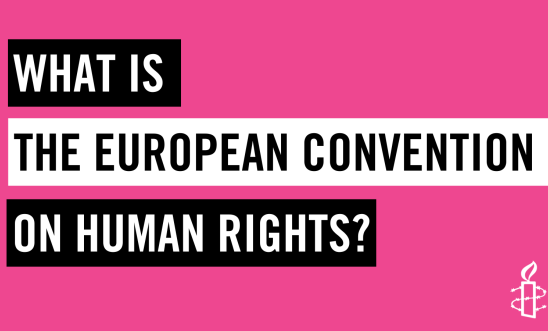
What is the European Convention on Human Rights?

On 4 November 1950, the UK made a commitment - a promise - that everyone’s rights would be protected by law, no matter their postcode, religion or colour of their skin. By signing the European Convention on Human Rights it was building a society where the rights of all of us were protected.
But fast forward to now, and that promise is once again under threat. Some politicians have been on a mission to divide us - to paint the ECHR as the villain in our national story. It’s time to set the record straight.
The ECHR has been instrumental in shaping the society we have today. It has played a key role in decriminalising homosexuality, banning corporal punishment in schools and pushing the Government to criminalise modern slavery. It’s there to support child survivors of human trafficking, survivors of domestic abuse and curb excess surveillance.
Not only would withdrawing from it be a massive step backwards for the UK cutting this country off from an invaluable body of human rights protections, it would breach the Good Friday Agreement imperilling peace in Northern Ireland.
Basically - it’s been a guardian of a free and fair society.
The myths spun about the ECHR are just that - myths. Blaming it for problems in our society is just a distraction to scapegoat people and divert attention from deeper issues. Our values are reflected in how we treat the most marginalised, overlooked and underrepresented in our society. The ECHR embodies these values by ensuring that everyone’s rights are upheld - not just those of a select few. When one person’s rights are protected - we are all protected.
In these times of uncertainty and division, it’s more important than ever to stand firm on what unites us. As we mark the anniversary, let’s challenge the narratives that seek to undermine our values. Let’s remember that the ECHR keeps the Government and those in power in check. It is a commitment to each other and a protective shield for us all.
Our blogs are written by Amnesty International staff, volunteers and other interested individuals, to encourage debate around human rights issues. They do not necessarily represent the views of Amnesty International.
0 comments